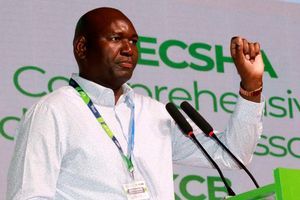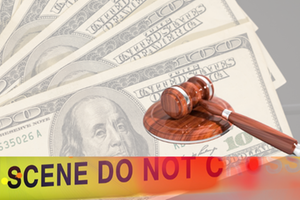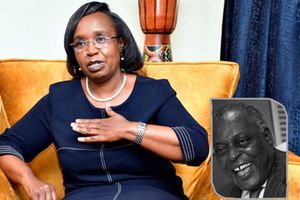Premium
The disaster that was my first TV interview

The presenter asked me a question he hadn’t emailed me, catching me off guard.
The first interview I ever did, on TV, was a disaster. At the time, editors of various Nation magazines were expected to discuss the stories they would feature in the publications the following day on NTV, a sister company of the Daily Nation.
Being World Cancer Day the following day, the main feature on the magazine I was editing at the time had a comprehensive story on breast cancer, one of the most common cancers in the world.
The presenter who was to interview me had given me questions that he would ask beforehand, and this being my maiden TV interview, I had prepared adequately, so adequately in fact, I would have qualified to become an oncologist — Dr Njung’e, expert on breast cancer.
The interview was to take place at 8am, and being a stickler for time, I was already in the office by 7am.
I was nervous, this being my first time in front of the camera, and the fact that the interview was live, therefore what you would see and hear is what you would get, made it worse, but I was confident in the fact that the exam had been leaked to me the day before and I had crammed all the answers.
At quarter to 8am, I headed upstairs to the studio. Surely it wouldn’t be that hard, I told myself, all I had to do was stay calm and recite the scripted answers. And then I got into the studio and was hit by a blinding hot blast of studio lights that made me start sweating like a pig almost immediately, disorienting me momentarily.
At that moment, I wondered how TV presenters manage to look so poised and glamorous on our screens. Thankfully, I managed to recover quickly, and the interview got underway.
It went South from the word go. You see, the presenter asked me a question he hadn’t emailed me, catching me off guard. You should have heard me stumbling over my words – I must have said “You know…” a thousand and one times by the time the interview was over. I can tell you, authoritatively, that if you ever hear someone infusing what he’s saying with many “you knows”, they have no idea what they are talking about. Anyway, the second question that was thrown at me by the sadist reporter did not sound familiar either, nor did the third and fourth.
But I managed to wing it, and wonder of wonders, I managed not to sound like a total imbecile.
I am one of those people that forget easily, but after that disastrous interview, I liked that reporter a little less, even though were I to be honest, I would have been able to smoothly answer those questions had I not been fixated on cramming.
But that was then, were I to be called for a TV interview today, the experience would be much easier, this is because today’s journalist is expected to be all rounded, to be conversant and skilled in multiple areas of journalism – one cannot afford to be competent in just one area, for instance, if you report for print, you must also be capable of reporting for TV and vice versa, and also be able to report for online as well.
A journalist with just one skill is a liability to the employer.
How work is done has really changed, and not just in journalism, all careers now demand a multi-skilled employee, there simply isn’t room for the worker that knows how to do just one thing.
[email protected]





